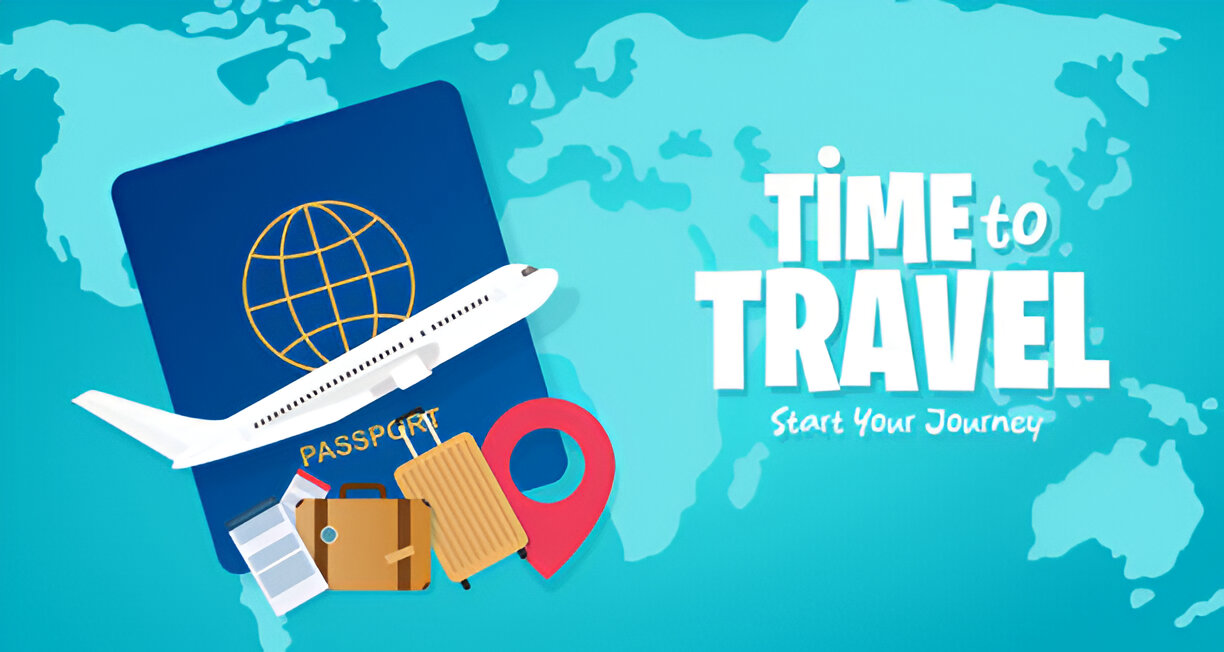“Revolutionizing Travel: How AI is Transforming Outbound Tourism Experiences.”
Introduction
Artificial Intelligence (AI) is revolutionizing the outbound tourism sector by enhancing customer experiences, streamlining operations, and personalizing travel services. From intelligent chatbots providing 24/7 customer support to advanced data analytics predicting travel trends, AI is transforming how travelers plan and experience their journeys. By leveraging machine learning algorithms, travel companies can offer tailored recommendations, optimize pricing strategies, and improve operational efficiency. As AI continues to evolve, it is reshaping the landscape of outbound tourism, making travel more accessible, efficient, and enjoyable for consumers worldwide.
Personalized Travel Recommendations Through AI
The advent of artificial intelligence (AI) has significantly transformed various sectors, and the outbound tourism industry is no exception. One of the most notable changes brought about by AI is the enhancement of personalized travel recommendations, which has revolutionized how travelers plan their journeys. As consumers increasingly seek tailored experiences that cater to their individual preferences, AI technologies have emerged as powerful tools that can analyze vast amounts of data to deliver customized travel suggestions.
To begin with, AI algorithms utilize machine learning techniques to process and analyze user data, including past travel history, preferences, and even social media activity. By examining this information, AI systems can identify patterns and trends that inform personalized recommendations. For instance, if a traveler frequently visits beach destinations and engages with content related to water sports, the AI can suggest similar locations that offer these activities, thereby enhancing the likelihood of a satisfying travel experience. This level of personalization not only saves time for travelers but also increases their overall satisfaction, as they are more likely to discover destinations and activities that resonate with their interests.
Moreover, AI-driven platforms can adapt in real-time to changing user preferences. As travelers interact with these systems, their feedback and choices are continuously analyzed, allowing the AI to refine its recommendations. This dynamic approach ensures that the suggestions remain relevant and aligned with the traveler’s evolving desires. For example, if a user initially shows interest in cultural experiences but later expresses a preference for adventure activities, the AI can swiftly adjust its recommendations to include hiking trails or adventure sports in the suggested destinations. This adaptability is crucial in an industry where consumer preferences can shift rapidly, and it underscores the importance of AI in providing a responsive and engaging travel planning experience.
In addition to enhancing personalization, AI also plays a vital role in aggregating information from various sources, thereby offering travelers a comprehensive view of their options. By integrating data from reviews, travel blogs, and social media, AI systems can present a well-rounded perspective on potential destinations. This holistic approach not only empowers travelers to make informed decisions but also fosters a sense of confidence in their choices. As travelers are presented with a curated selection of options that align with their interests, they are more likely to feel excited about their upcoming adventures.
Furthermore, the use of AI in personalized travel recommendations extends beyond mere destination suggestions. It encompasses various aspects of the travel experience, including accommodation, dining, and activities. For instance, AI can recommend hotels that match a traveler’s budget and preferences, suggest restaurants based on dietary restrictions, or highlight local events that align with their interests. This comprehensive personalization enhances the overall travel experience, making it more enjoyable and memorable.
As the outbound tourism sector continues to evolve, the integration of AI technologies will undoubtedly play a pivotal role in shaping the future of travel. By providing personalized recommendations that cater to individual preferences, AI not only enhances the planning process but also enriches the travel experience itself. As travelers increasingly seek unique and tailored adventures, the ability of AI to deliver customized insights will become an indispensable asset in the tourism industry. In conclusion, the impact of AI on personalized travel recommendations is profound, paving the way for a more engaging and satisfying travel experience for individuals around the globe.
AI-Powered Customer Service in Travel Agencies
The integration of artificial intelligence (AI) into the outbound tourism sector has revolutionized various aspects of travel planning and customer service, particularly within travel agencies. As travelers increasingly seek personalized experiences and immediate assistance, AI-powered customer service solutions have emerged as a vital tool for agencies striving to meet these demands. By leveraging advanced algorithms and machine learning capabilities, travel agencies can enhance their customer interactions, streamline operations, and ultimately improve the overall travel experience.
One of the most significant advantages of AI in customer service is its ability to provide instant responses to inquiries. Traditional customer service models often involve long wait times and limited availability, which can frustrate travelers eager for information. In contrast, AI chatbots and virtual assistants are available 24/7, offering immediate assistance with booking inquiries, itinerary changes, and general travel advice. This immediacy not only enhances customer satisfaction but also allows travel agencies to handle a higher volume of inquiries without the need for additional staff, thereby optimizing operational efficiency.
Moreover, AI systems can analyze vast amounts of data to deliver personalized recommendations tailored to individual preferences. By examining past travel behavior, preferences, and even social media activity, AI can suggest destinations, accommodations, and activities that align with a traveler’s interests. This level of personalization fosters a deeper connection between the traveler and the agency, as clients feel understood and valued. Consequently, this personalized approach can lead to increased customer loyalty and repeat business, which are essential for the long-term success of travel agencies in a competitive market.
In addition to enhancing customer interactions, AI-powered customer service tools can also assist travel agencies in managing complex itineraries. For instance, AI can automatically update clients about flight changes, gate information, or delays, ensuring that travelers are well-informed throughout their journey. This proactive communication not only alleviates stress for travelers but also positions the agency as a reliable partner in their travel experience. Furthermore, by automating routine tasks such as booking confirmations and follow-up emails, travel agents can focus on more strategic aspects of their business, such as building relationships with clients and curating unique travel experiences.
Another noteworthy aspect of AI in customer service is its ability to gather and analyze customer feedback in real time. By utilizing sentiment analysis tools, travel agencies can monitor customer satisfaction levels and identify areas for improvement. This data-driven approach enables agencies to adapt their services based on client feedback, ensuring that they remain responsive to changing traveler needs and preferences. As a result, agencies can continuously refine their offerings, enhancing the overall quality of service and fostering a culture of innovation.
Furthermore, the implementation of AI in customer service can lead to significant cost savings for travel agencies. By automating routine inquiries and tasks, agencies can reduce the need for extensive customer service teams, allowing them to allocate resources more effectively. This financial efficiency can be reinvested into other areas of the business, such as marketing or technology upgrades, ultimately driving growth and enhancing competitiveness in the outbound tourism sector.
In conclusion, AI-powered customer service is transforming the outbound tourism sector by providing instant assistance, personalized recommendations, and efficient management of travel itineraries. As travel agencies continue to embrace these technologies, they are not only improving customer satisfaction but also positioning themselves for long-term success in an ever-evolving industry. The future of travel is undoubtedly intertwined with AI, and those agencies that harness its potential will thrive in the dynamic landscape of outbound tourism.
Predictive Analytics for Travel Trends and Demand
The advent of artificial intelligence (AI) has ushered in a transformative era for various industries, and the outbound tourism sector is no exception. One of the most significant ways AI is reshaping this landscape is through predictive analytics, which enables stakeholders to anticipate travel trends and demand with remarkable accuracy. By harnessing vast amounts of data, AI algorithms can identify patterns and correlations that were previously difficult to discern, thereby providing valuable insights that can inform strategic decision-making.
To begin with, predictive analytics leverages historical data, consumer behavior, and market dynamics to forecast future travel trends. For instance, by analyzing past travel patterns, AI can identify seasonal fluctuations, popular destinations, and emerging travel preferences. This capability allows travel agencies, airlines, and hospitality providers to tailor their offerings to meet the evolving needs of travelers. As a result, businesses can optimize their marketing strategies, ensuring that promotions and advertisements are aligned with anticipated demand, ultimately enhancing customer engagement and satisfaction.
Moreover, the integration of AI-driven predictive analytics into the outbound tourism sector facilitates more efficient resource allocation. By accurately forecasting demand, companies can better manage their inventory, staffing, and operational costs. For example, airlines can adjust flight schedules and capacity based on predicted passenger numbers, while hotels can optimize room availability and pricing strategies. This proactive approach not only minimizes waste but also maximizes profitability, as businesses can respond swiftly to fluctuations in demand without compromising service quality.
In addition to operational efficiencies, predictive analytics also plays a crucial role in enhancing the customer experience. By understanding traveler preferences and behaviors, companies can offer personalized recommendations and tailored travel packages. For instance, AI can analyze a traveler’s past bookings, online interactions, and social media activity to suggest destinations, activities, and accommodations that align with their interests. This level of personalization not only increases customer satisfaction but also fosters brand loyalty, as travelers are more likely to return to businesses that understand and cater to their unique needs.
Furthermore, the use of predictive analytics extends beyond individual companies to encompass the entire tourism ecosystem. By sharing data and insights across various stakeholders, including governments, tourism boards, and local businesses, the industry can collectively respond to emerging trends and challenges. For example, during times of crisis, such as a pandemic or natural disaster, predictive analytics can help identify shifts in traveler sentiment and behavior, enabling stakeholders to implement timely measures to ensure safety and restore confidence in travel.
As the outbound tourism sector continues to evolve, the role of AI and predictive analytics will only become more pronounced. The ability to anticipate trends and demand not only empowers businesses to make informed decisions but also enhances the overall travel experience for consumers. In an increasingly competitive market, those who leverage these advanced technologies will be better positioned to thrive. Consequently, the integration of predictive analytics into the tourism sector represents a significant step forward, paving the way for a more responsive, efficient, and customer-centric industry. As we look to the future, it is clear that AI will remain a pivotal force in shaping the dynamics of outbound tourism, driving innovation and growth in ways that were once unimaginable.
Conclusion
AI is revolutionizing the outbound tourism sector by enhancing customer experiences, streamlining operations, and personalizing travel recommendations. Through advanced data analytics, AI enables travel companies to understand consumer preferences better, optimize pricing strategies, and improve marketing efforts. Automation of customer service through chatbots and virtual assistants increases efficiency and accessibility, while AI-driven tools facilitate seamless travel planning and booking processes. Overall, AI is transforming the outbound tourism landscape by making it more efficient, personalized, and responsive to the evolving needs of travelers.


